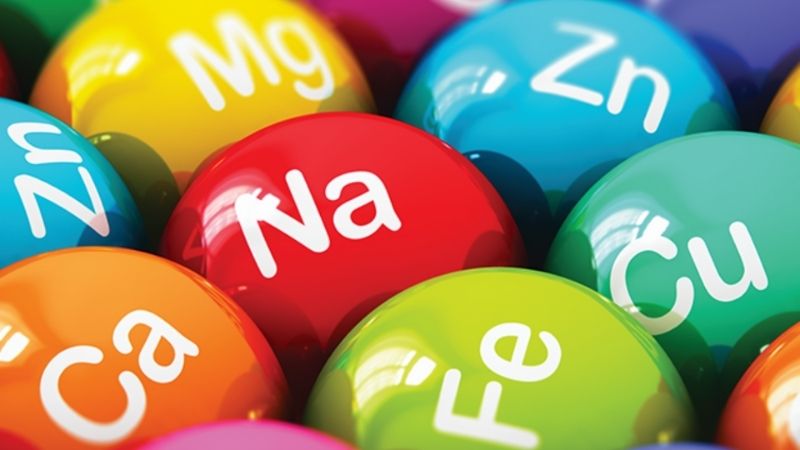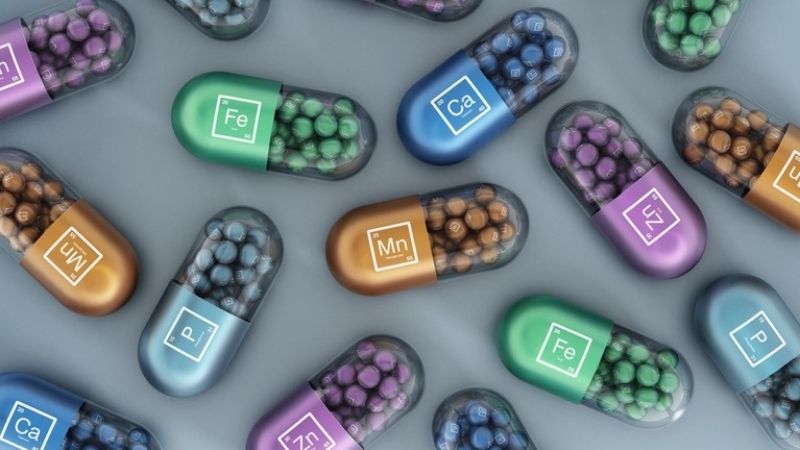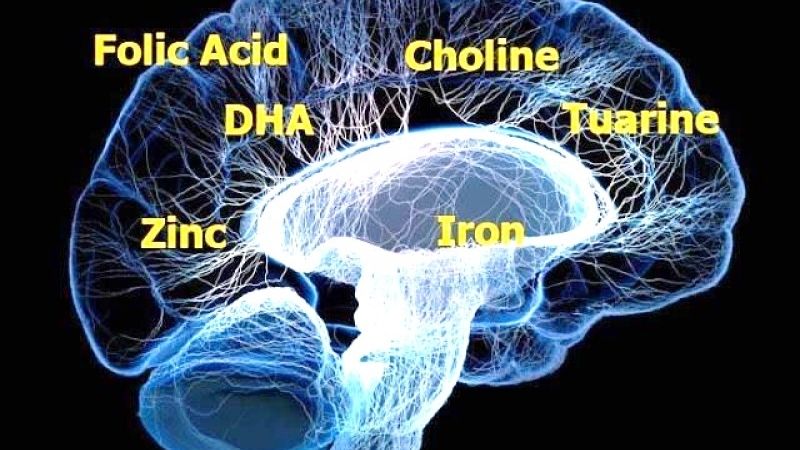Minerals are essential nutrients that are needed to maintain good health, but not everyone understands them clearly. Let’s learn about minerals through the article below.
Every person’s daily diet always requires adequate provision of nutrients such as protein, starch, lipid, vitamins and minerals are no exception. In this article, let’s find out what minerals are, what types of minerals there are and what role they play in our bodies.
1. What are minerals?

Minerals are essential nutrients for the body.
Minerals are an important nutrient for maintaining the health of the body. They are inorganic components that play numerous roles in human cells both physiologically and biochemically.
The body’s organ systems use minerals for growth, development, movement, energy production, utilization and maintenance of internal homeostasis.
A balanced diet will help you provide all the essential minerals to maintain good health. In cases where the diet is not sufficient to meet the mineral requirements, we can also use supplements.
2. Types of minerals

Minerals are divided into two types.
Essential minerals are minerals that are essential for human health and are divided into two main groups based on the concentration required for normal body function, including macro minerals and trace minerals.
Minerals in the macro group include calcium, phosphorus, magnesium, sodium, potassium, chloride and sulfur.
Meanwhile, the trace minerals group is equally important for health, including iron, manganese, copper, iodine, zinc, cobalt, fluoride and selenium.
3. The role of minerals in the body

Many minerals play an important role in nerve signal transmission.
Many naturally occurring minerals are metals that are used to make strong, durable everyday objects, like copper pipes or iron pans. But they don’t form such strong, durable objects in our bodies. Instead, these essential minerals are needed to activate enzymes – molecules that do important jobs in the body. Each mineral also has many other special essential roles. Here are their roles:
– Calcium: Builds bones and teeth, activates enzymes throughout the body, helps regulate blood pressure, helps muscles relax and contract, transmits nerve impulses and helps blood clot. (See also calcium products to prevent osteoporosis in adults, rickets in children).
– Copper: Supports energy metabolism, creates red blood cells, regulates neurotransmitters and eliminates free radicals in the body.
– Iron: Helps make hemoglobin (the chemical that carries oxygen in the body’s red blood cells) and myoglobin (a protein in muscle cells). Iron is needed to activate some enzymes and to make amino acids, collagen, neurotransmitters, and hormones.
– Magnesium: Like calcium, magnesium helps form bones and teeth, helps regulate blood pressure and blood sugar, and allows muscles to contract, conduct nerve impulses, help blood clot, and contribute to the activity of enzymes.
– Manganese: Helps form bones, metabolize amino acids, cholesterol, and carbohydrates.
– Potassium: Balances the body’s internal fluids, helps maintain a steady heart rate and makes muscles contract, and is beneficial for bones and blood pressure.
– Sodium: Balances fluids in the body, helps send nerve impulses, and helps muscles contract.
– Zinc: Helps blood clot, create proteins and DNA, helps heal wounds and cell division, in addition, zinc also functions in taste perception, participates in the formation of many enzymes, maintains normal fetal development, sperm production, normal growth and sexual maturity, contributes to strengthening the immune system.
– Chloride: Necessary for homeostasis in the body, is a component that creates acid in gastric juice.
– Iodine: Found in thyroid hormones, helps regulate growth, development and metabolism
– Fluoride: Participates in the formation of bones and teeth, helps prevent tooth decay.
Essential minerals are indispensable nutrients to maintain our daily activities and help the body stay healthy. Hopefully, the above article has helped you gain more useful knowledge about the concept of minerals and their role in human health.





